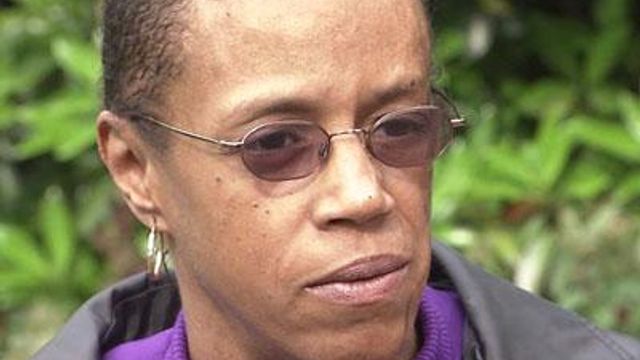UNC doc heals self-image of attempted murder victim
Plastic surgeons are using new tools to erase the scars of people like a Raleigh woman who survived being stabbed and scalded with hot oil.
Renee Adams Jones' life changed forever on Jan. 16, 2009, when she went over to the house of a friend, Melvin Lancaster.
Jones borrowed Lancaster's computer to email a resume while he was frying chicken in the kitchen. Then, for no reason that Jones knows, he snapped.
"While I was on the Internet, next thing I know, I was being stabbed in my head 10 times," she sad. "That's when he poured hot oil on my head, and it went down."
Then, she said, he sliced the left side of her face with a scalpel.
A neighbor called 911, and Jones eventually ended up at the North Carolina Jaycee Burn Center at UNC Hospitals in Chapel Hill.
Along with deep cuts on her face and head, she had third-degree burns on 12 percent of her body.
Then she met UNC plastic surgeon Scott Hultman.
"Dr. Hultman came into the room, and I was laying there, and he looked at me, and he said, 'I'm going to fix your face,'" Jones recalled.
Hultman helped repair the cuts and used skin grafts to cover the burned skin on her neck and chest.
"Only a few years ago, we couldn't offer someone like Renee much more treatment. We had to be happy with the results that we got and, quite frankly, weren't that good," Hultman said.
Advances in technology, though, offer more options for cases like Jones'.
First, a pulse dye laser was used to reduce inflammation remaining on Jones' neck and chest. The intense pulse light lightens dark scars. (The laser is also used to remove age spots.)
"The CO2, though, is really what has emerged recently that may revolutionize burn care," Hultman said.
The CO2 laser is set to zap 15 percent of small patches of skin, vaporizing abnormal collagen below the surface of the skin. It's helped Jones' scars to fade, and she'll continue treatments until they disappear as much as possible.
What might never fade, though, is the fear left from the vicious attack.
"I don't trust nobody, especially men," Jones said.
Lancaster was convicted of attacking to Jones and will be in prison until 2020, according to state Department of Correction records.
Jones volunteers with Interact, working on a hotline for women who are victims of violence.
She hopes all victims can meet healers like she did.
"Dr. Hultman is the one who gave me my self-esteem back," Jones said.











